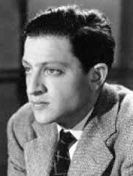Skip to: site menu | section menu | main content
Welcome To Democracy And Socialism .Com
Things should be made as simple as possible, but not any simpler- Albert Einstein
Jules Dassin (1911-2008) |
 |
Jules Dassin, a prominent humanist, political activist, actor, screenwriter, film producer and one of the greatest directors of cinema, died on the last day of March, in an Athens’ hospital, at the age of 96.
Son of a Russian immigrant, he was born in Middletown, Connecticut on December 18th, 1911. He attended Morris High School in the Bronx and drama school in Europe. Growing up in the hunger-stricken Harlem and witnessing the lavish life of Manhattan’s rich, left Dassin disgusted of the iniquity and brutality of robber baron capitalism. He became active in the Communist Party, while continuing his career as an actor, theatre producer and film director. At the height of his progress as an innovative director, with movies like “Brute Force” (1947), and “Naked City” (1948), he became subjected to the hearing of the House Un-American Activities Committee, during McCarthyism of the 1950s. Dassin never testified in the HUAAC, and never compromised in his belief as a communist. He was blacklisted and Hollywood doors were closed to this extra-ordinary young director.
In 1953, Dassin was forced to leave the U.S. for France, because as he said, he was “unemployable” in Hollywood. In France he encountered hard times and largely remained unemployed for about 5 years. U.S. distributors made it clear to the European studios that they would not carry any film with the Dassin name on it. In need of money he agreed to direct “Rififi”, a low budget production. “Rififi” (1955), which is now considered a landmark of the film noir genre, granted him the best director prize of 1955, Cannes Film Festival.
It was during this Festival that he met the renowned Greek singer and actress Melina Mercouri. Melina became his second wife in 1966. She starred in seven of Dassin’s movies; among them is “He Who Must Die”, a 1957 film based on the novel “Christ Recrucified” by renowned Greek writer Nikos Kasantzakis.
Jules and Melina Dassin helped to organize Greek resistance among expatriate politicians and artists in Paris, against the junta which came to power by a CIA sponsored coup in 1967. Dassins were even accused by junta of sponsoring an attempted coup, a ridiculous claim that was rejected by them.
After the fall of the fascist colonels in 1974, Melina and Jules Dassin retuned to Greece and played a leading role in the establishment of political democracy in that country. Melina was elected member of Greek parliament in 1974, and culture minister of socialist government in 1981.
Melinda died in 1994, and Greek state awarded Jules honorary citizenship in 1997. Dassin continued his campaign for peace and social justice in the world until his death.
Other famous movies are:
The Tell-Tale Heart (1941)
Nazi Agent (1942)
Reunion in France (1942)
The Affairs of Martha (1942)
Young Ideas (1943)
The Cantherville Ghost (1944)
The Smart People (1946)
A Letter for Evie (1946)
Thieves’ Highway (1949)
Night and the City (1950)
La, Legge (1959)
Never on Sunday (1960)
Phaedra (1962)
Topkapi (1964)
10:30 P.M. Summer (1966)
Survival, a documentary (1967)
Up Tight! (1968)
Promise at Dawn (1970)
The rehearsal, about an indictment of the Greek Junta leaders (1974)
Kravgi gynaikon, A Dream of Passion (1978)
Circle of Two (1980)